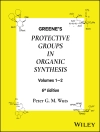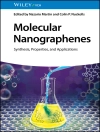A detailed, up-to-date review of transition metal-containing
polymers
Promising advances in the electrical, optical, magnetic,
biological, and catalytic properties that metal-containing polymers
possess have led to notable expansion in the field of transition
metal-containing polymers. Frontiers in Transition
Metal-Containing Polymers provides a comprehensive, up-to-date
review of the synthesis, properties, and applications of transition
metal-containing polymers, including an overview of the historical
development of these types of polymers.
Written by the leading researchers in the field, this thorough
volume covers the routes to organometallic and coordination
polymers, as well as characterization and applications of
transition metal-containing monomers and polymers. Other topics
discussed include:
* Metallo-supramolecular coordination polymers based on nitrogen
ligands
* Coordination polymers based on phosphorus ligands
* Polypeptide-based metallobiopolymers and DNA-based
metallopolymers
* Metallodendrimers
* Self-assembly of metal-containing block copolymers
* Applications including drug delivery, optics, molecular
devices, sensors, conductive materials, and more
Inhoudsopgave
Contributors.
Chapter 1. Organometallic Polymers. The Early Days (Charles U.
Pittman, and Charles E. Carraher).
Chapter 2. Recent Developments in Organometallic Polymers (Alaa
S. Abd-El-Aziz and Patrick O. Shipman).
Chapter 3. Block Copolymers with Transition Metals in the Main
Chain (David A. Rider and Ian Manners).
Chapter 4. Metal Containing Conjugated Polymers (Mark J.
Mac Lachlan).
Chapter 5. Metal Coordination Polymers for Nanofabrication (Wai
Kin Chan, and Kai Wing Cheng).
Chapter 6. Rigid-Rod Polymetallaynes (Wai-Yeung Wong and
Cheuk-Lam Ho).
Chapter 7. Polymers with Metal-Metal Bonds along Their Backbones
(David Tyler).
Chapter 8. Structures and Properties of 1-D Transition
Metal-Containing Coordination/Organometallic Polymers and Oligomers
Built Upon Assembling Diphosphine and Diisocyanide Ligands (Pierre
D. Harvey).
Chapter 9. Redox-based functionalities of multi-nuclear metal
complex systems (Hiroshi Nishihara).
Chapter 10. Metallodendrimers and Their Potential Utilitarian
Applications (Seok-Ho Hwang and George R. Newkome).
Chapter 11. Metallodendritic Iron Complexes: Design, Catalysis
and Molecular Recognition (Didier Astruc).
Chapter 12. Polypeptide-Based Metallobiopolymers (Khaled A.
Mahmoud and Heinz-Bernhard Kraatz).
Chapter 13. Supramolecular Metal Arrays on Artificial
Metallo-DNAs and Peptides. (Mitsuhiko Shionoya).
Subject Index.
Metals Index.
Over de auteur
Alaa S. Abd-El-Aziz is currently the Associate
Vice-President (Academic & Research) at the University of
British Columbia Okanagan, Canada. Alaa was appointed as an
assistant professor in the Department of Chemistry at The
University of Winnipeg in 1990. He moved to the rank of full
professor in 1997, the same year he was named a Fellow of the
Chemical Institute of Canada. He’s been the recipient of a number
of awards, including the Manitoba Outstanding Chemist Award, the
Erica and Arnold Rogers Award for Excellence in Research and
Scholarship, and the Clifford J. Robson Memorial Award for
Excellence in Teaching.
Ian Manners is a Professor and Chair of Inorganic,
Macromolecular, and Materials Chemistry and Marie Curie Chair in
the School of Chemistry at the University of Bristol, in the UK.
Ian was a Canada Research Chair in Inorganic, Polymer, and
Materials Chemistry at the Department of Chemistry, University of
Toronto, Canada, until 2005. He has received a range of awards,
including a Corday-Morgan Medal and the Main Group Chemistry Award
from the UK, an Alfred P. Sloan Fellowship from the USA, the
Macromolecular Science and Engineering Award, the Alcan Lecture
Award, and the Steacie Prize in Canada. Ian was elected as Fellow
to the Royal Society of Canada (the Canadian National Academy of
Science) in 2001.












